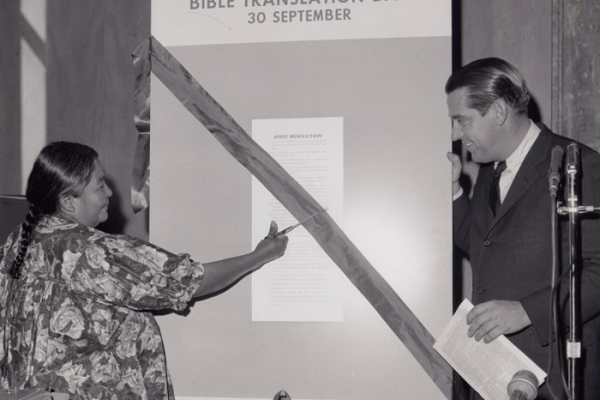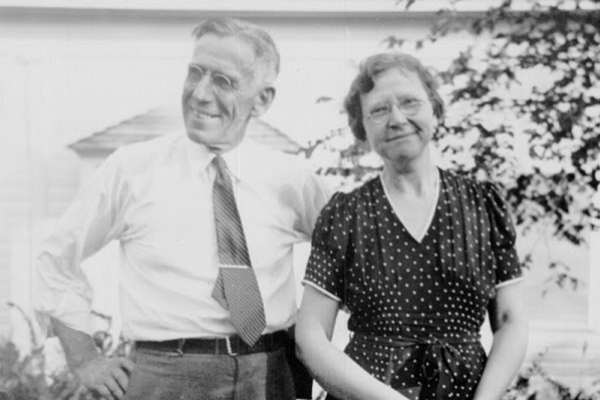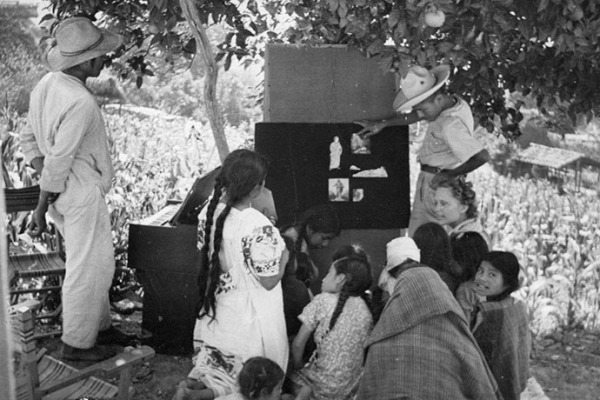A Story of God’s Goodness: The Life and Legacy of Josephine Makil
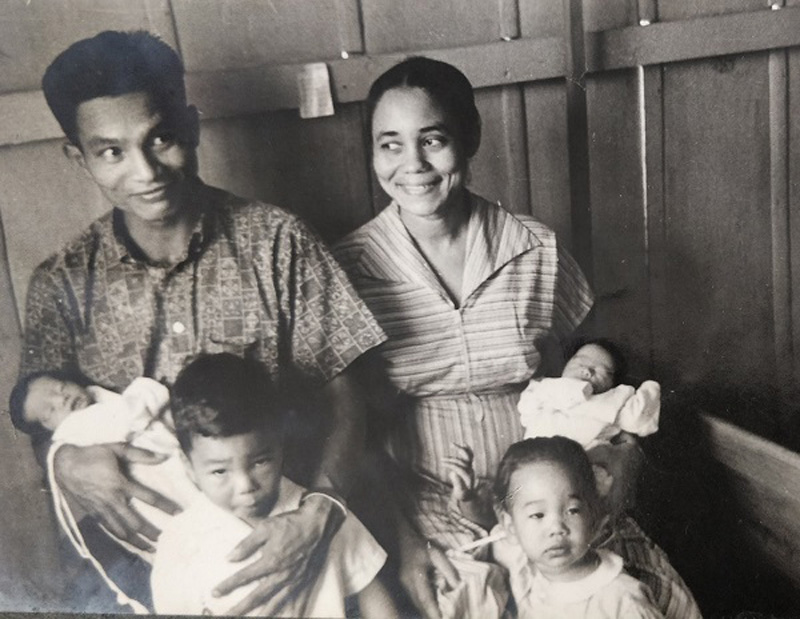
As a Wycliffe missionary, Josephine Makil endured many hardships and triumphs abroad and in the U.S. Throughout it all, she was able to see the power of God at work.
The Beginning of a Journey
Before she passed away, Josephine shared the following story of her family and the beginnings of the passion she had for missions work:
“I came from a Christian family where the Scriptures were read every day in our home. … My grandparents — and both grandfathers especially — were born in the time of slavery, and they had come West seeking freedom and opportunity. One of my great grandfathers was a preacher who planted 13 churches in Kansas.
“Missions and reaching out to others were values in my family. My own father, Orville T. Johnson, had wanted to go to the Navajo Nation as a missionary. Dad never saw that dream [realized], but I remember that after hard winter freezes he would load his truck with water and food and go check on the American Indian encampment near our small town. Ironically, when I was preparing to go for mission service, Dad was not so keen on my going. Even though he was a Christian, he thought maybe he would never see me again. This turned out to be true, as he was killed in a car accident while I was in Vietnam.
“My mother, Mrs. Alberta Johnson, was a very resourceful and kind sort of person. She had gone to a small African American college supported by the Methodist church, and trained in Christian education. Though her goal was to be a nurse, she married my dad instead and followed him to the southern plains of Colorado. As a result, the pioneer lifestyle on the mission field did not test me. What tested me was the Scriptures to prove what was in me.”
One verse from 1 Corinthians in particular challenged Josephine: “Make love your aim …” (1 Corinthians 14:1a, RSV).
Blessings and Struggles
Josephine continued to be passionate about missions and serving God’s global Kingdom. But the circumstances weren’t always easy, especially in college. She shared:
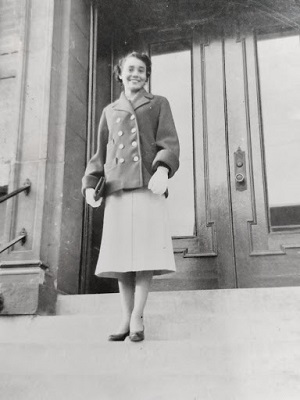
“As a young woman I left my hometown and moved to Denver, Colorado. I became acquainted with an elderly missionary who had served in Lithuania. She invited me to Bible study and we enjoyed that for over two years. Out of that study came a desire to study the Scriptures in a deeper way. I had already begun to think about missions — maybe some kind of children’s work in South America.
“My desire to know God better and to serve him brought me to [Bible college] in the 1950s — however, I discovered I could not live in the dorm because of the color of my skin. That was very disheartening to me because I had come to Bible school with high motivation. I was ready to give it my all, and the prejudice discouraged me and blunted my enthusiasm. I never regained that same drive. However my missionary mentor counseled me to move in response to God’s will and not man’s.
“At the same time I was very blessed by Bible school because of God’s Word. One day in class a verse from Psalms came to me: ‘Taste and see that the Lord is good’ (Psalm 34:8a, NIV).”
While there were struggles, she also experienced joys in college: “Once, my mother came up from Colorado on a long train ride to visit me in Chicago. I told her, ‘Mom, there is a young preacher who is gaining a lot of notoriety and he is preaching tonight. Let’s go hear him.’ And she and I did fall under the charisma of the young Dr. Martin Luther King Jr. in that little church.”
Serving With Wycliffe
Josephine met her husband, Gaspar Makil, through a friend at a Bible study. As singles, Josephine and Gaspar had each privately decided that the best marriage partner would put their relationship with God higher than anything the world could give. The couple joined Wycliffe Bible Translators and were assigned as Bible translators in 1959, beginning their missionary service to the Roglai people in Vietnam in 1962. Gaspar had previously sought the Lord about translating in the northern Philippines; to date his native language still has no Bible translation.
By this time, the couple had two children, Thomas and Carol, and then twin girls were born in Vietnam — Janie and Jessie. The friendships forged with their Wycliffe colleagues in Vietnam went deep; this was a mutually supportive community and those friendships lasted a lifetime. Josephine once wrote, “… There is a closer tie than with even some of my blood kin.”
In 1963, the Makil family and another missionary family, the Jacobsons, were traveling to survey language groups when they encountered a road block by northern Vietnamese soldiers. The families were fired upon and both men were killed along with baby Janie. Three-year-old Thomas’ leg was shattered with a bullet.
When Josephine told the story later on, she would quote Luke 9:62: “But Jesus said to him, ‘No one, after putting his hand to the plow and looking back, is fit for the kingdom of God’ (RSV).” Despite the trauma and loss, Josephine had made a commitment to serve God in missions. She and her children moved to Nasuli, Bukidnon, Philippines, to finish out her service term. While there, she set up a preschool for missionary children, worked with translation projects and did medical outreach for remote Filipino people groups.

Returning to the States
When Josephine returned to the U.S. on furlough with her three children in 1972, she went back to college in Colorado and earned a B.A. in elementary education. Concurrently, she worked in the Denver school system as an ESL teacher serving many Southeast Asian children who immigrated to the U.S. in the 1970s.
After being reassigned to Texas in 1976, Josephine directed the early childhood programs at Wycliffe’s Dallas training school, including designing the classroom space. She also served as an international administrative associate who consulted with preschool education programs. An important joy to Josephine was her membership at her local church, Oak Cliff Bible Fellowship, with its pastor, Dr. Anthony Evans. And in 1980, Josephine was asked to take on the task of ethnic minority recruitment with a special emphasis on African American communities.
In 1989, Josephine accepted an assignment as a literacy specialist with the Gullah Sea Island Creole (a language spoken by former slaves living off the coast of South Carolina) translation team for three years. Until she retired in June 2002, after 42 years of missions service, Josephine worked in the former Graduate Institute of Applied Linguistics (G.I.A.L.), which is now Dallas International University, as an assistant in the social linguistics department, a cross-cultural trainer and international student coordinator.
Blessings and Legacies
Josephine Makil followed God’s call on her life, even when it was difficult. And in the process, she blessed and mentored many people including Wycliffe USA Pacific field coordinator Estella Trostle. As Estella reflected on Josephine’s legacy, she said: “I was blessed to have Mrs. Makil as a mentor … being one of few [black women] in Wycliffe [at the time].” Jacqueline Huggins and Gertrude Nicholas were also notable black women who served as inspirations for Estella.
Estella continued: “[Josephine] encouraged me to never lose sight of the fact the Lord called me to Him first, not to my race or culture, and my service was for building up His Kingdom. … [Keeping] a spiritual focus, I believe, is why I’m still in this amazing ministry. She modeled it for me and many others. In our last conversation a few days before she would go to heaven she asked me, ‘Estella how will you let the Lord use you at [your church] and Wycliffe?’”
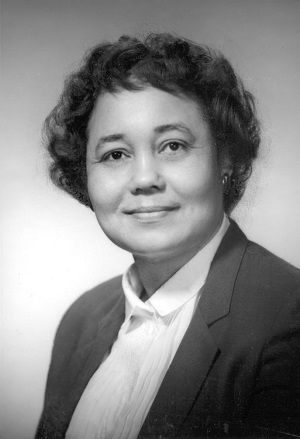
Josephine Makil’s life was an offering to God. Through struggles, damage done by discrimination even in Christian communities and the trauma of early loss, she walked with lots of grace. She felt that African Americans made great missionaries because they could empathize with world cultures who have experienced disenfranchisement, racism and poverty. A missionary life has costs, but Josephine’s life demonstrates that in our weakness, God’s power is perfected.
Pray for God’s amazing work to continue for generations to come by bringing Scripture to people in their own language.


